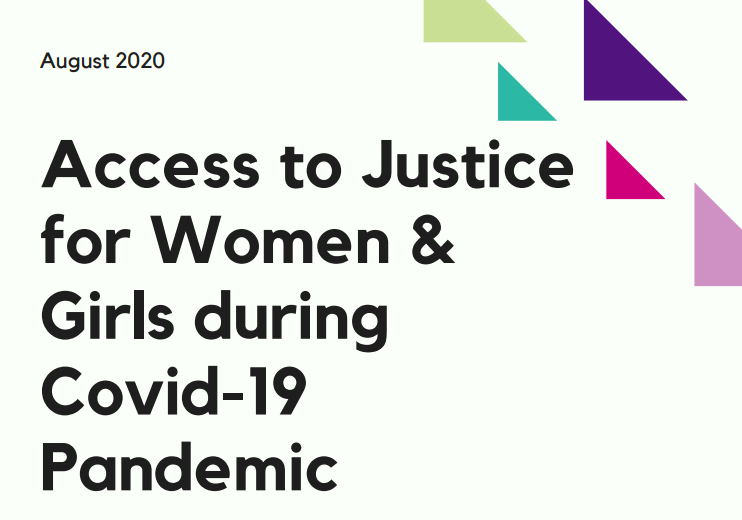 19 Mar
19 Mar
Leading women’s groups have today (14 August) published a short report on the numerous new problems women are facing in the criminal and family justice systems in England & Wales due to Covid, and have called on the Government to show curiosity and leadership to alleviate these, alongside resourcing and measures to keep children safe.
The 29pp report by the End Violence Against Women Coalition, Imkaan, the Centre for Women’s Justice, Rape Crisis England & Wales and Rights of Women sets out the multiple new barriers to protection and justice that women are now facing when they are dealing with domestic and sexual violence, including:
Remote hearings in family court cases, which can be complex but are being conducted on conference call facilities with numerous participants and no thought to interpreters or childcare;
Deep worries about the reach and quality of criminal investigations during this period, which may lead to poor trial outcomes if and when the growing courts backlog is ever addressed;
Endemic racism in both systems confronting Black and minoritized women trying to keep themselves and their children safe; this is never addressed but sees women constantly exhorted to report abuse;
Abuse of child contact arrangements enabled by poor family courts practice;
Suspension of duties to protect vulnerable children which violate human rights;
Unclear decision-making on restraining orders;
Uncertainty about jury trials, an enormous courts backlog, and worries about ‘summary justice’.
End Violence Against Women Coalition Director Sarah Green said:
“What we set out today should set off alarm bells when considered by those charged with ensuring our justice systems are fit for purpose. More than ever Covid has created issues around participation, confidentiality and due process. Women already face criminal and family systems which discriminate against us. Covid has seriously exacerbated these and leaves us with deep worries about the ability to access basic needs on matters including child contact, restraining orders and criminal investigations.”
“In particular, Black and minoritized women’s actual experience of the criminal and family justice systems needs to be understood in terms of the ongoing, systemic racism therein. It is not acceptable to keep exhorting ‘all’ women to report abuse when such experiences are endemic. Policy makers and system leaders need to make a high priority of finding out about these women’s experiences and views, and implementing reform, which should include considerable workforce training. There should be public commitment to this at Cabinet level. The Prime Minister has commissioned a review on racism. What we have highlighted should feature prominently as everyday experiences which lead to very high harm.”
Rape Crisis England & Wales National Spokesperson Katie Russell says:
“Our report is clear that the family and criminal systems were already under extreme strain and have never worked well for women experiencing violence and especially for Black and minoritized women. If we don’t resolve to address and fix this now, before perhaps further public health restrictions, then will we ever?”
Rights of Women Director Estelle Du Boulay says:
“What we are laying out in this report is urgent. What we need to see is strong leadership and resolve to improve women’s safety and access to justice from hereon. Women’s justice and protection needs must not be collateral damage in this Covid crisis. In particular the vulnerable children regulations should be annulled immediately and judges and advocates in family courts must show awareness of how isolation requirements can be abused during this health crisis.”
Harriet Wistrich, Director of Centre for Women’s Justice says:
“We cannot get to the end of this crisis, whenever that may be, and realise that we allowed the legal systems to fail women and children for want of preventative action. Women’s groups are monitoring women’s experiences and we have made clear what some of the most urgent issues are. We expect a response and we will take action to uphold women’s rights at every opportunity.”
The report sets out recommendations on Cabinet level leadership and intervention; recognition of systemic racism; resourcing; a more cautious approach to out of court disposals; ending the vulnerable children emergency regulations and legal aid.
The report is available to read here: Access to Justice for Women & Girls during Covid-19 Pandemic
Recommended ARTICLES
 19 Mar
19 Mar
 05 Mar
05 Mar
 27 Feb
27 Feb

